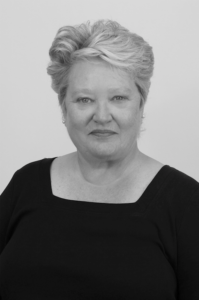Friday, June 4
11:15-12:30pm EST
Title: Culturally Responsive Post-qualitative Research: The Field is Our Best Friend
Abstract: Located in the question of what is possible in the “afterward” of the long-running critiques of science, this talk makes 3 points: 1) whatever the “post-qualitative” might be, it is situated complexly in a post-truth era, 2) it is grounded in posthuman ontologies of entanglement, intraaction, and minoritizing and indigenous knowledges, and 3) the implications for fieldwork are beginning to take shape. If one can encapsulate the history of qualitative research from an early qualitative/quantitative binary through the multiple paradigms of the late 1980’s to the qualitative/quantitative realignment of a post-paradigm era, what does today’s qualitative research look like? While I have a developing interest in the implications for quantitative research (post-quantitative?), in this talk, I look at the “positivist qualitative” dominant as a disciplining reduction of interpretive approaches and turn to the post-qualitative or post-critical as an undoing that moves deeper into complication and accountability to complexity.
If critical theory is the focus on structures of power and post-critical is that which takes poststructural and post-colonial theories into account, then post-qualitative is that which re-engages with the beyond of the linguistic turn. This is NOT old school Marxist materialism with its identity politics and economics in the last instance, but, rather, an engagement with questions of objectivity IN deconstruction and the posthuman and agentic realism of Karen Barad and quantum physics. Its move is toward the political value of not being so sure toward a research imaginary that finds shape and standards in what we are making in its name. This includes practices that no longer have such a hold on us where we struggle with ghosts as terms collapse. I then turn to what all of this might mean for fieldwork. With a focus on what different designs and methods enact and an ethics of critical engagement, I call upon a handful of exemplars to
argue that the field is our best friend in developing practices toward a different kind of science.
Time permitting, I will conclude with a highly interactive exercise with the audience, Kill this Keyword, where we work with the terms circulating in the field at present where “keeping up” with the shifting vocabularies in qualitative research can be exhaustive. How does “theorizing” too often fall into rote recitation of over-determined keywords? What do we want to hang onto in terms of productive tensions? What do we think we cannot think without?
Presenter:
Patti Lather
Emerita Professor, Cultural Foundations, Technology & Qualitative Inquiry
The Ohio State University

Biography:
Patti Lather (she/her) is Professor Emerita in the Department of Educational Studies, College of Education and Human Ecology, at The Ohio State University where she taught qualitative research, feminist methodology and gender and education from 1988-2014. She is the author of numerous articles and five books, the latest being (Post)Critical Methodologies: The Science Possible After the Critiques: The Selected Writings of Patti Lather, 2017. She has lectured around the world, including a 1989 Fulbright to New Zealand, and is a 2009 inductee of the AERA Fellows, a 2010 recipient of the AERA Division B Lifetime Achievement Award, and a 2015 recipient of the International Congress of Qualitative Inquiry (ICQI) Lifetime Achievement Award.

